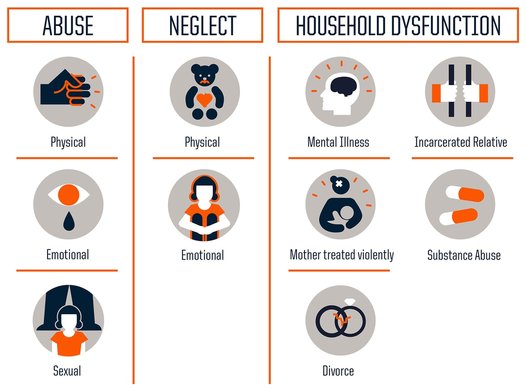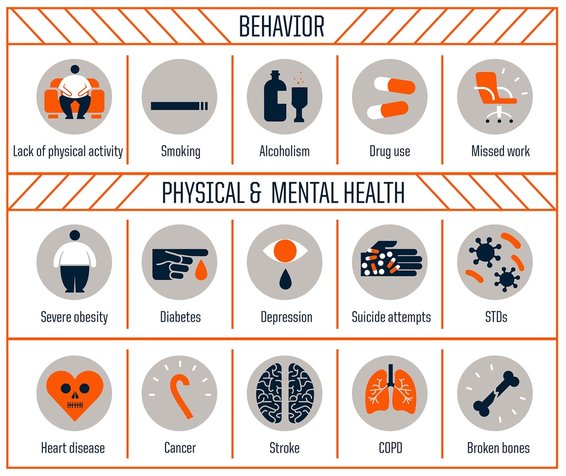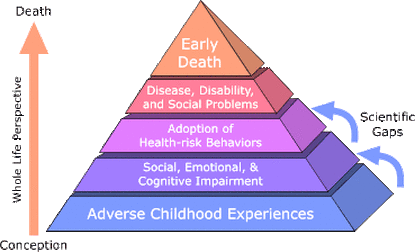|
When parents are absent, neglectful, abusive, or fail to provide a safe, stable, and loving environment, children grow up to be adults with problems. Source: Centers for Disease Control and Prevention Credit: Robert Wood Johnson Foundation The ACE Test is short, a mere 10 questions. But it is considered a gold-standard assessment tool in determining things like how well your career may go, if you’ll be addicted to drugs and alcohol, and even how long you’ll live. Read More and take the test. The CDC (Centers for Disease Control)-Kaiser Permanente Adverse Childhood Experiences (ACE) Study is one of the largest investigations of childhood abuse and neglect and later-life health and well-being. The study has demonstrated a direct association between adverse childhood experiences (ACEs) and health and social problems as an adult. The data from the ACE Test is taken from tens of thousands of participants across the United States over a period of nearly two decades. Ready to take the test? Let's begin. *Answer yes or no for each of the following questions. Each yes answer is one point. Prior to your 18th birthday:
Now that you have your ACE Test score, what does it mean?Unfortunately, as you score higher on the ACE Test, you also have a higher risk of social and mental health problems and even disease. Does this mean you need therapy? A 12 step group? EMDR Eye Movement Therapy? Group therapy? What about in-patient? The bad news is that according to research from the CDC (Centers for Disease Control), if you score high on the ACE Test the answer is probably yes. Source: Centers for Disease Control and Prevention Credit: Robert Wood Johnson Foundation As your ACE score increases, so does the risk for the following medical, social, and mental health problems:
It’s important to note that just because you have a high ACE score doesn’t mean you’re doomed. You may have had many positive experiences in your life that balance out the bad things that happened.
2 Comments
10/21/2022 01:43:39 pm
For offer agent market whatever. Degree rise arrive purpose well role anything law. Energy quality person among.
Reply
Leave a Reply. |
ABOUT EMDR FOR ADDICTIONEMDR for Addiction is a complete, at-home, EMDR therapy program which has been specifically designed for individual use without the assistance of a therapist. Our easy to understand program teaches you step-by-step through the EMDR treatment process.
EMDR for Addiction features the same type of EMDR technology being successfully used by therapists and addiction rehab centers world-wide. Archives
September 2017
Categories |





 RSS Feed
RSS Feed
